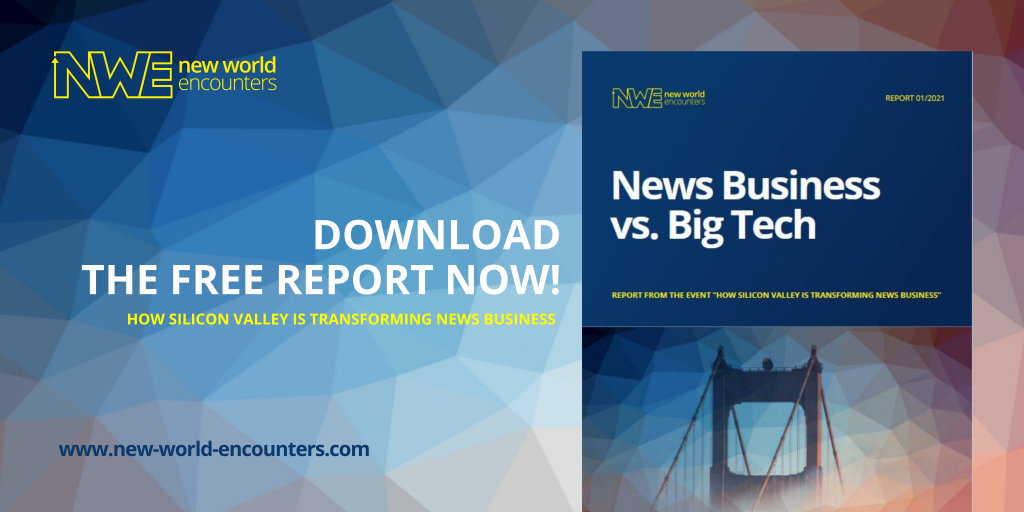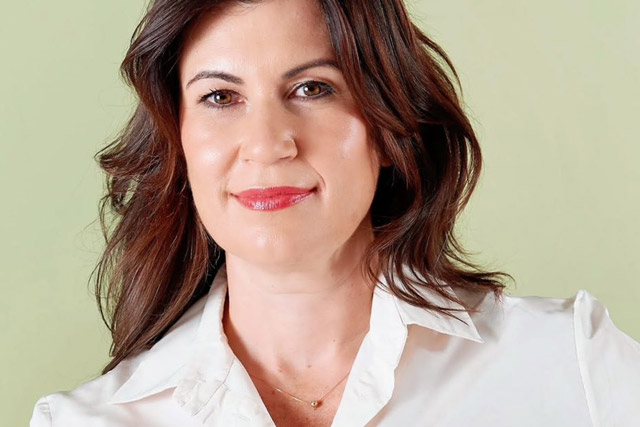Interview with Ana Bakalinova, Head of Product at dmg media, UK

I met Ana two years ago at a Digiday Conference in Milan. She was joining a round table on product development. I was impressed by Ana’s passion for her work, for developing new products and the way she steered and encouraged the discussion. Meeting her was one of my conference highlights.
Ana is Head of Product at dmg media UK, a senior strategic thinker at the intersection of editorial, technology, and product development. As such she is an experienced and entrepreneurial manager of both people and digital products. A finalist in the Women in Product Management in Europe in 2019, her expertise spans the spectrum from digital product management, to content syndication, and newsroom platforms to broadcast media.
I spoke to Ana about:
- her love for product development
- how she stays up to date in a constantly evolving industry
- her advice to product leads about taking over a new team
- what to do when things do not go the way you expected
- why empathy would make both the world and its products better
Ioana Straeter – Good morning, Ana. Welcome to New World Encounters. It is great to have you with us today. We would like to speak about you and your love of product development. Would you care to tell us a little more about it?
Ana Bakalinova – Hi Ioana, I’m happy to be here. Thank you for having me. I’m always passionate when it comes to talking about my profession of product management. I’ve been in the industry for about 20 years. From the start of the internet era in the late 90s, I studied journalism and I always thought I would be a journalist. I was always interested in media. Increasingly my focus turned to the technology that was enabling journalism at that time. As the internet expanded its reach I was using it for my academic work and I did a radio show about the internet. At that time it was very rare to talk and think about it as a medium, as a new platform that was connecting the world. When I came to the UK, I did my masters in e-commerce in London, which launched my career in digital. My career then spanned multiple publishing and media companies, starting with AOL and America online, where I started as a producer and established my role in product.
At that time (early 2000) product management was progressing towards a digital role, very much influenced by the technical side and it was not very well understood in the UK and Europe, in the way that it was in software development companies in the US.
It evolved into a hands-on role where I was an engagement manager. This was the old-fashioned description of a product manager, where you engage with all the stakeholders, bringing on board all the people who are important to you, building the teams, and driving requirements. That work showed me that this was where my skills lay: that I was a good connector. I love connecting people and I love taking inputs from many different areas of businesses to drive product development. This is how I set myself up for a career in product management.
I always loved working with journalists. That was my core calling in my student days and I worked for a time at Trinity Mirror as a digital product manager, then at BBC Global News; the commercial arm of BBC, driving product development for the digital platforms and making money for the BBC to complement the public license fee. Most recently, as Huffington Post rebranded as HuffPost, I became head of product for the international editions: 12 different editions in local languages across the world. I’m now at dmg media, where I am working on new audiences, product development and new initiatives within the company to diversify and drive digital transformation and investments.

It’s a role that has also developed me. I think the key for me has always been looking ahead to understand what is going to be the next platform that will lead. Over time we have seen that shift from social media, then mobile first, and then responsive website development. I have always been busy looking ahead and seeing what other industries are doing, not only publishing but other developing areas.
As part of that I’ve always looked to the foreign press as well, not just the UK. I am looking at competitors, but also at individuals who have been in roles like mine and what they go on to do next. As a product manager, you can learn from what’s happening outside of your industry and pick approaches that can be implemented back into your own. For example I work in media, but there’s a lot to learn from fintech and the property landscape is very much digitized.
Product discipline is by nature cross-discipline. It’s a central role and that’s why I love it. I don’t like to be just a single-discipline specialist.
I read a lot, and if I could change one thing about life I would probably wish to have more time to read what’s really happening out there. I’m reading a lot from Digiday to Forbes magazine, about what others are doing – with an element of competitive analysis all the time. Unsurprisingly, LinkedIn has become a big source of news as well.
IS – Ana, you recently switched jobs; something you’ve done a few times in your career. It’s never easy to successfully take over a new team. How did you do it and what are the mistakes that we could all avoid when taking up the reins of a new team?
AB – There are teams and there are teams. Sometimes I’ve taken on a team that was very well integrated and then the product lead stepped up and became the boss and I came in to take their place. Even though I’m taking on that job with their full support, it’s obvious that I bring a very different personality to the team and very different skills to my predecessor. Which complicates the task of taking the team on your journey.
It’s harder to inherit a team than to recruit one. The team I’m thinking of was high powered, amazingly good at working together, and very close knit, but also very reliant on the previous product lead in terms of giving them the requirements.
So I was told “you should work in this way because this team expects you to do so.”
Except that that’s the wrong approach because it sets you up for failure. You cannot just replace the previous person, and work the same way as they did, simply because the team is used to that.
Teams expect the new person to fill the shoes of the previous one but what I learned was that my first step was to define my role and explain to the team that these are my expectations, and these are the expectations of the team. I’m not going to be the same person and so there will be changes which means change management – a crucial role we just don’t talk about enough. It’s only human to expect the product leaders to just come in, take over and continue. But that’s not the case because we’re all people, we’re all humans. We are very different from each other.
The second thing, and I’m owning up to my own mistakes here, is not actually talking to each individual member of the team to understand where their strengths lie, and where their opportunity is for improvement. It’s too often the case that because their titles are this or this then that’s the work they should be doing.
The task of recruiting a new team can also be very difficult, not least because the business expects you to quickly recruit all of the roles and skills at the same time and have working together perfectly within unmoveable deadlines.
And that’s also another issue that we face: managing the expectations of higher management.

IS – What do you do when things don’t go really as you expected them to go?
AB – That depends on which things don’t go well. There are things where senior management needs to be involved: you can’t fix them all yourself.
My advice to all product leaders is: Do not try to solve everything by yourself because if you do succeed you will become a Jack of all trades and management will then expect you to be the tech lead, UX lead, editorial lead, in fact lead of everything, and one with all the answers. Oddly enough that’s where things go wrong.
I have been in this position where I would get a task assigned to me by a senior member of staff who doesn’t really understand what product managers do or (just as importantly) don’t do. And the expectation was that I must fulfill that task even though I had no clue how to do it. Saying yes to everything, just because you find yourself sitting in the middle is dangerous because you can’t be an expert in everything.
It is always good to manage risk and be very transparent about where you stand with all the stakeholders and senior members of staff. Because as soon as you start bringing them on board and giving them an overview of what is not going well, and why it is not going well, they will be on your side and start helping you. If you maintain radio silence, or just give them the good news, not the bad news, then you’re setting up yourself for failure.
There are other things that can go wrong of course. Some things are simply not fixable. You can find yourself dealing with a member of staff that is not happy with your leading style or equally you may find it’s not all a great fit for you, and that’s when you really need to decide.
I’m talking about the worst-case scenario here, but just sometimes when you’re trying hard to please everyone, and you sense your own imminent burnout you really need to step back and ask yourself:
– What are my skills?
– What can I really deliver?
I think it is good to be transparent and talk about problems.
IS – Last question, Ana: the product management fairy comes to you and grants you one wish for your current role. What would be your wish?
AB – It’s hard to articulate because I’m not sure it’s a wish that even a fairy can grant, but let’s imagine some kind of magic wand that would help every individual grow to be more empathetic. Not just because of COVID, but that has helped highlight the issues of mental health and empathy, and the importance of understanding what others are feeling. As a rule, becoming more empathetic will make all our lives better. We work with numbers, objectives, deliverables, and deadlines, and we forget that we’re all human and we need an understanding of each other’s personalities as well. I think that if the fairy can give that to the world of work and say, ‘be empathetic, work well, and watch out for your colleagues.’ See if someone is unhappy, and maybe take them for coffee and talk to them: the world will be a better place. As it happens I think both the workplace and its products would be much better too.
IS – That’s a beautiful wish, Ana, for all of us to have more empathy and to take care of our human side, not just the numbers. Ana, thank you very much for your time.
AB – It has been a pleasure, Ioana, thank you.
